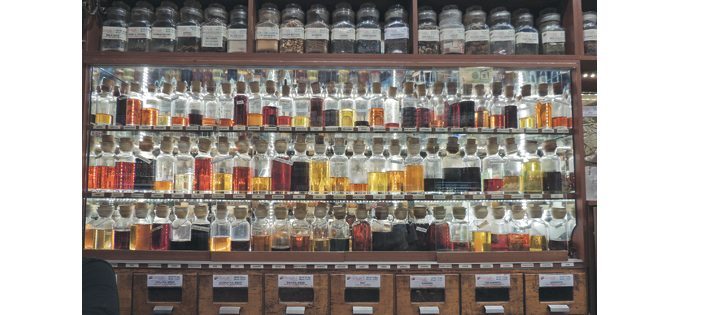When it comes to irony, it would be hard to top a Health Canada notice from April 15.
Health Canada said St. Francis Herb Farm, a Canadian manufacturer of herbal remedies, was recalling All Seasons Detox Kit because the product contained an unacceptably high level of lead.
The company, located in Combermere, Ont., also recalled a herbal laxative called Bulklax V because it contained seven times the acceptable level of lead and twice the acceptable limit for arsenic.
But while the irony may be amusing, the potential health consequences are not. Health Canada says lead poisoning can cause anemia, miscarriage and damage to kidneys and the brain. Consumption of arsenic can cause vomiting, diarrhea, numbness and loss of movement.
Read Also

Manitoba community projects get support from HyLife
HyLife Fun Days 2025 donated $35,000 each to recreation and housing projects in Killarney, Steinach and Neepawa earlier this fall.
Health Canada didn’t respond to a request for an explanation about how the herbal remedies were contaminated with lead and arsenic.
Rick DeSylva, a herbalist from Rockwood, Ont., said the recall was surprising because St. Francis Herb Farm has a good reputation within the natural health products industry.
He said the medicinal herbs in the remedies might have come from overseas.
“It could be that in one of the products … there might have been a herb from China or Egypt. China, I wouldn’t trust any herbs coming from there,” said DeSylva, a botanical medicine expert and vice-president of the Canadian Association of Herbal Practitioners in Eastern Canada.
“There are some produce and herbs grown on ‘night soil’ (in China).”
Using sewage sludge to fertilize agricultural land is a common practice in China, according to the Lead Group, which works to eliminate lead poisoning and protect the environment from lead.
Heavy metals, such as lead, arsenic, chromium and mercury, are often found in sewage sludge. Plants or crops grown on soil treated with sewage sludge can absorb the contaminants.
Herbert Strobl, a medicinal herb grower from Cultus Lake, B.C., said many Canadian and global manufacturers of herbal remedies buy medicinal herbs from places like Eastern Europe, Egypt and China because the products are much cheaper than North American herbs.
He said that’s worrisome for Canada’s medicinal herb industry and consumers because the agricultural standards for botanical herb production are often substandard in those countries.
“Some products that come into Canada from China, they claim they follow the USDA standards … (but) I doubt that it will.”
But the Canadian Health Food Association, which represents the natural health products industry, said Canadians shouldn’t worry about the safety of medicinal herbs from countries like China, Egypt and Bulgaria.
“Canada has one of the most advanced regulatory frameworks for natural health products, including herbs, in the world,” said president Helen Long.
“Before being sold in Canada, a manufacturer must provide an attestation-evaluation form demonstrating approved testing methods that evaluate a “finished product…. The evaluation must fulfill a number of specifications using standardized laboratory methods.”
Connie Kehler, executive director of the Saskatchewan Herb and Spice Association, said there is no guarantee that medicinal herbs grown overseas will follow agricultural standards comparable to North America.
“My strong suggestion is buy from Canadian manufacturers because we have (rules) in place.”
Kehler said the St. Francis Herb Farm recall demonstrates that Canadian protocols do protect consumers.
“I know it’s hard to see a recall like this and (be) anything but scared … (but) holy smokes, the system is working.”
Canada’s natural health products industry doesn’t keep detailed statistics on the percentage of remedies made from imported medicinal herbs compared to products made from Canadian grown herbs, but Canadian herbs are a fraction of the marketplace.
“A small percentage is produced in Canada,” said Sean Westerveld, a ginseng and medicinal herb specialist with the Ontario agriculture ministry.
“A lot of things are still imported.”
Wanda Wolf, who runs Lonewolf Plant & Herb Farm and manufactures herbal products near Battleford, Sask., said she buys medicinal herbs from growers all over the globe but tries to avoid Chinese suppliers.
“I’ll shy away from them, myself,” she said.
“There are some not so positive reports (out of China).”
Wolf prefers to work with growers who adhere to production guidelines known as good agricultural and collection practices.
Contact robert.arnason@producer.com
















